10 Incredibly Tasty Heart Healthy Foods
Discover 10 delicious foods that love your heart as much as you do.

- Heart disease remains the leading cause of death in the USA for both men and women, making heart-healthy eating more critical than ever.
- Many foods that benefit cardiovascular health are both nutritious and flavorful, contradicting the myth that heart-healthy eating means bland food.
- Regular consumption of heart-healthy foods like blueberries, olive oil, and dark chocolate can significantly reduce heart disease risk factors including high blood pressure and cholesterol.
Heart disease continues to be the number one killer in the United States and worldwide, affecting millions of people annually. [1]
While many factors contribute to heart health, diet plays a crucial role in prevention and management. Contrary to popular belief, foods that benefit your heart don’t have to taste like cardboard.
This article explores ten delicious foods that not only satisfy your taste buds but also provide exceptional benefits for your cardiovascular system.
The Importance of Heart Health
The heart functions as a tireless muscle, pumping blood through its four chambers to deliver oxygen throughout the body 24 hours a day. Unlike other muscles, the heart receives nutrients through a specialized system of coronary arteries. When these arteries become clogged with plaque, serious problems can develop.
On the left side, oxygenated blood comes through the bottom left chamber and is instantly being pushed back into circulation through the top left chamber. It’s a complex system that works non-stop, and the most interesting part is that the heart isn’t fed by nutrients like all other muscles.
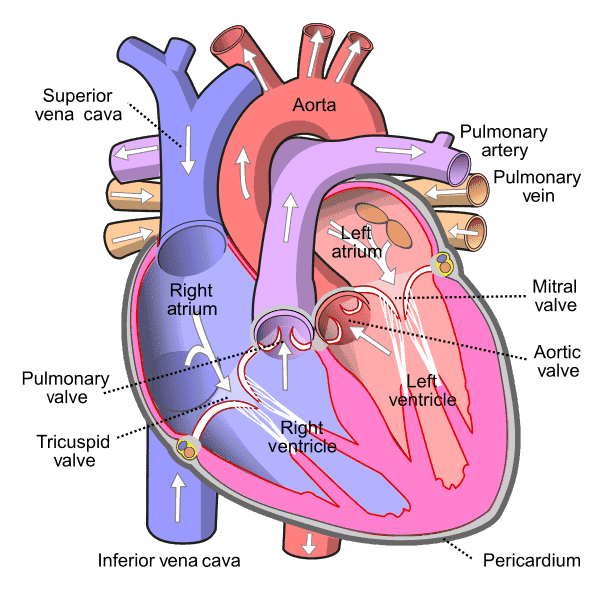
A system of coronary arteries from the aorta “powers” the heart and keeps it alive. When these arteries get clogged up by plaque, the heart is protected by inactive collateral vessels. This can lead to heart disease, which as we already mentioned is deadly serious.
Heart disease is actually an umbrella term for heart defects, rhythm problems, and coronary artery disease. It manifests through a variety of symptoms which include angina, neck, shoulder, and jaw pain, shortness of breath, and pain and numbness in the legs and arms. Of course, each condition has a specific set of symptoms.
Heart disease and cardiovascular disease are not the same – the latter is a condition caused by narrow arteries that don’t allow proper blood flow. Cardiovascular disease can lead to stroke and heart attack which manifests early by chest pain.
Heart Disease Risk Factors
Heart disease encompasses various conditions including coronary artery disease, heart rhythm problems, and structural defects. Common symptoms include chest pain (angina), shortness of breath, and pain or numbness in the extremities.
Several factors increase heart disease risk, including:
- Smoking
- High cholesterol
- Obesity
- Poor diet
- Physical inactivity
- Diabetes
- Chronic stress
The American Heart Association and numerous research institutions have consistently found that dietary choices significantly impact heart health. So what exactly should you be eating? Let’s dive into the top heart-healthy foods that pack both nutrition and flavor.
Best Tasty And Heart Healthy Foods

1. Blueberries
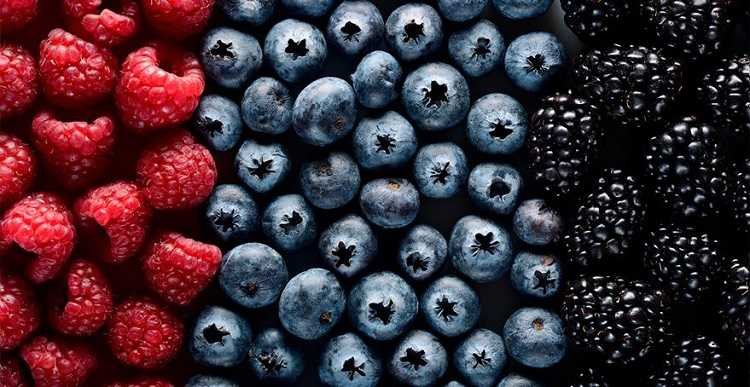
These small blue powerhouses deserve their “superfood” reputation. Packed with antioxidants, fiber, and plant compounds called anthocyanins, blueberries actively combat inflammation and oxidative damage.
According to research published in the American Journal of Clinical Nutrition, consuming three or more servings of blueberries weekly can reduce heart disease risk by approximately 32%. (Ed. note: This is a significant reduction from a relatively simple dietary addition.)
How do they work? The anthocyanins in blueberries = compounds that improve blood vessel function, reduce blood pressure, and lower “bad” LDL cholesterol.
«But aren’t blueberries expensive?» While fresh blueberries can be pricey out of season, frozen varieties retain nearly all nutritional benefits and are often more affordable year-round.
2. Avocado
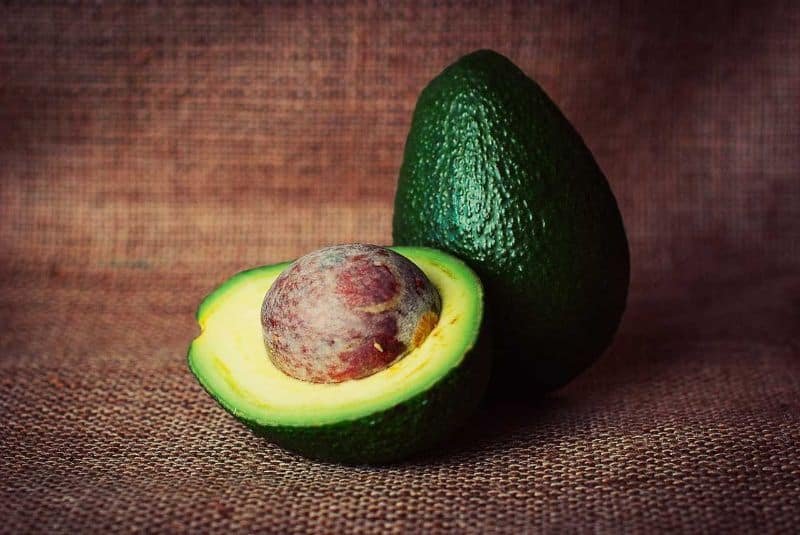
Once feared for their fat content, avocados have been rehabilitated as a heart-health superstar. These creamy fruits contain monounsaturated fats that help lower harmful LDL cholesterol while maintaining beneficial HDL levels.
A 2018 study in the Journal of the American Heart Association found that replacing saturated fats with avocado daily led to significant improvements in cardiovascular risk factors. Beyond healthy fats, avocados provide potassium, fiber, and antioxidants.
For those who find avocados bland, try them in guacamole with lime and spices or blended into chocolate mousse for a heart-healthy dessert that tastes anything but medicinal.
3. Dark Chocolate
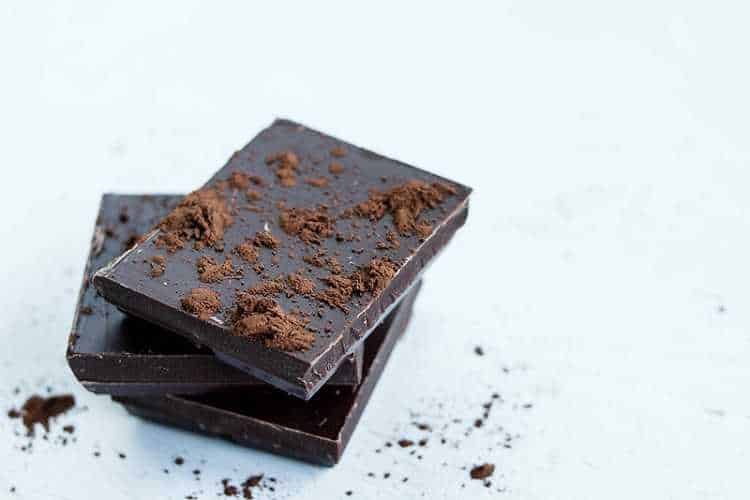
Good news for chocolate fans! Dark chocolate (70% cocoa or higher) contains flavanols that promote heart health. These compounds help relax blood vessels, improve blood flow, and reduce inflammation.
Research published in the BMJ found that moderate dark chocolate consumption was associated with a 37% reduced risk of cardiovascular disease. The key word here is “moderate” – about 1-2 small squares daily provides benefits without excess calories or sugar.
The higher the cocoa percentage, the greater the cardiovascular benefits and the lower the sugar content. For maximum flavor and health benefits, opt for minimally processed dark chocolate.
4. Almonds
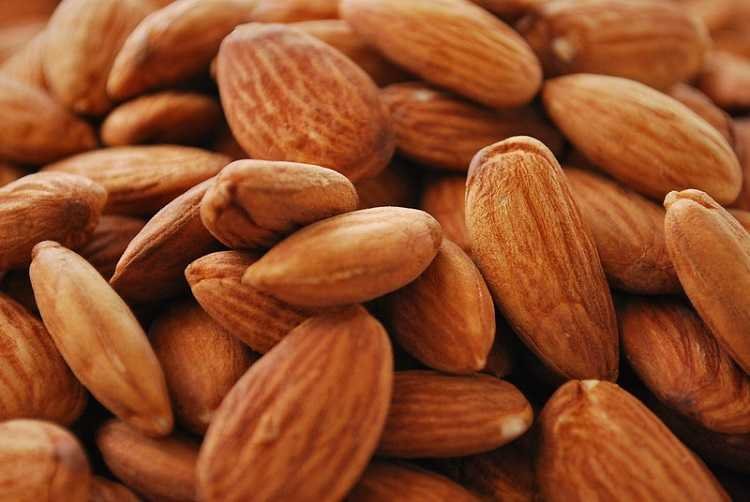
These crunchy nuts make perfect heart-healthy snacks. Almonds contain a remarkable nutritional profile including:
- Monounsaturated and polyunsaturated fats
- Vitamin E
- Magnesium
- Fiber
- Plant sterols
The combination of these nutrients helps reduce LDL cholesterol and inflammation while improving arterial function. A 2018 systematic review in the Journal of Nutritional Science found that regular almond consumption significantly improved lipid profiles and other heart disease risk factors.
A handful (about 23 almonds) daily provides substantial cardiovascular benefits without excessive calories.
5. Papaya

This tropical fruit deserves more attention in the heart-health conversation. Papayas contain lycopene, vitamin C, and unique enzymes that work together to reduce inflammation and oxidative stress.
Research from the University of Florida found that the antioxidants in papaya help prevent cholesterol oxidation – a key factor in plaque formation. Additionally, papaya’s potassium content helps regulate blood pressure.
The fruit’s vibrant orange color signals its high carotenoid content, which has been linked to reduced cardiovascular events in multiple population studies.
6. Red Wine

While excessive alcohol consumption damages health, moderate red wine intake may benefit the heart. Red wine contains resveratrol, an antioxidant compound found in grape skins.
Research published in Circulation Research suggests that resveratrol helps activate protective pathways in the heart and blood vessels. The Mediterranean diet, consistently rated among the healthiest eating patterns, traditionally includes modest red wine consumption.
What counts as “moderate”? For cardiovascular benefits without risks, limit consumption to one glass daily for women and up to two for men, preferably with meals.
7. Salmon

Fatty fish like salmon stand out for their omega-3 fatty acid content. These essential fats reduce inflammation, lower triglycerides, reduce blood clotting, and help regulate heart rhythm.
The American Heart Association recommends eating fish (particularly fatty fish) at least twice weekly to reduce cardiovascular risk. A 2018 meta-analysis in the Journal of the American Heart Association found that higher fish consumption was associated with lower rates of coronary heart disease and stroke.
Wild-caught salmon typically contains higher omega-3 levels than farm-raised varieties, though both provide cardiovascular benefits.
8. Tomatoes

These red fruits (yes, technically fruits) contain lycopene, a carotenoid with powerful antioxidant properties. Lycopene helps prevent LDL cholesterol oxidation and reduces inflammation in blood vessels.
Interestingly, cooked tomatoes provide more bioavailable lycopene than raw ones. A study in the British Journal of Nutrition found that tomato consumption was associated with reduced LDL cholesterol and improved blood vessel function.
Fresh, canned, or as sauce – tomatoes provide versatile heart protection in nearly any form.
9. Olive Oil
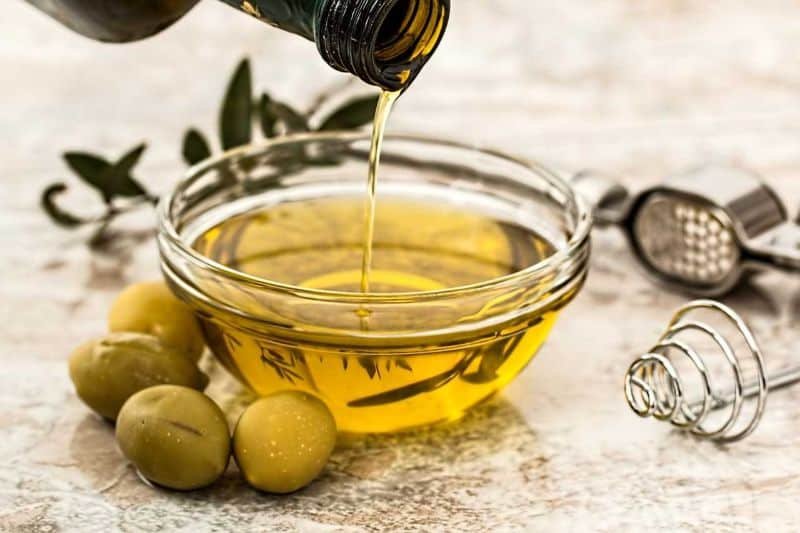
Mediterranean diets center around olive oil for good reason. This liquid gold contains monounsaturated fats and powerful antioxidants called polyphenols that protect blood vessels from damage.
The landmark PREDIMED study found that participants following a Mediterranean diet supplemented with extra virgin olive oil had a 30% lower risk of major cardiovascular events compared to those on a low-fat diet.
For maximum benefits, choose extra virgin olive oil, which undergoes minimal processing and retains the highest levels of beneficial compounds.
10. Walnuts
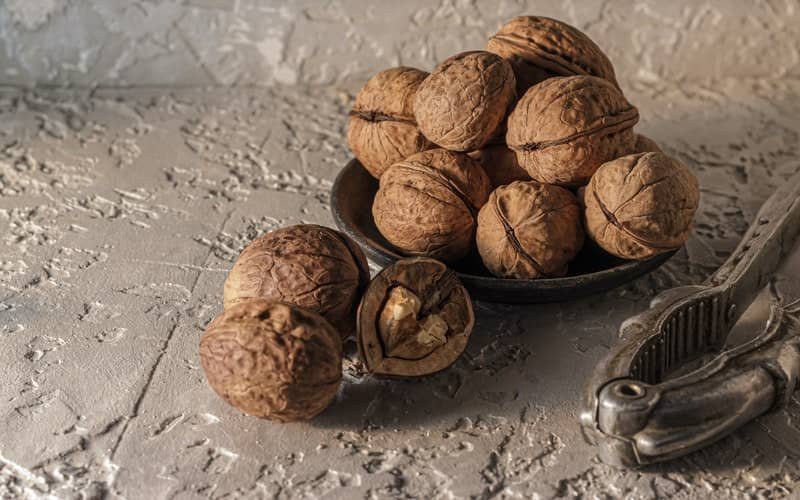
Finally, these brain-shaped nuts deserve a prominent place in any heart-healthy diet. Walnuts stand out among nuts for their exceptional omega-3 fatty acid content, specifically alpha-linolenic acid (ALA), which is rare in most other foods.
Research published in the Journal of the American College of Cardiology found that incorporating walnuts into daily eating patterns significantly reduced inflammation and improved cholesterol profiles. A 2019 study in the Journal of the American Heart Association showed that participants who consumed walnuts had better blood vessel function and lower LDL cholesterol levels.
What makes walnuts unique? Their nutritional profile includes:
- Plant-based omega-3 fatty acids
- L-arginine (an amino acid that helps produce nitric oxide, which relaxes blood vessels)
- Polyphenols with antioxidant properties
- Fiber that helps reduce cholesterol absorption
- Magnesium and potassium for blood pressure regulation
Just a quarter-cup serving (about a handful) daily provides substantial cardiovascular benefits. Try adding walnuts to oatmeal, yogurt, salads, or simply enjoying them as a convenient snack. For maximum freshness and nutrient preservation, store walnuts in the refrigerator or freezer, as their healthy oils can turn rancid when exposed to heat and light for extended periods.
Worthy Mentions
Beyond the top nine, several other foods deserve honorable mentions for their cardiovascular benefits:
- Pomegranates: Rich in antioxidants that help prevent arterial plaque
- Green tea: Contains catechins that improve blood vessel function
- Flaxseeds: Provide alpha-linolenic acid (ALA), a plant-based omega-3
- Raisins: Offer potassium and antioxidants that help lower blood pressure
- Red grapes: Contain resveratrol similar to red wine
Incorporating Heart-Healthy Foods
Creating a heart-protective diet doesn’t require complete lifestyle overhaul. Small, consistent changes often prove most sustainable. Try these approaches:
- Add blueberries to morning oatmeal or yogurt
- Replace butter with olive oil for cooking and baking
- Swap out processed snacks for a handful of almonds
- Include salmon in your weekly meal rotation
- End meals with a small square of dark chocolate instead of sugary desserts
Dr. Elizabeth Klodas, cardiologist and founder of the Preventive Cardiology Clinic, emphasizes this approach: “Food is medicine. What we eat directly affects our cardiovascular system either positively or negatively. The good news is that adding heart-protective foods often provides benefits relatively quickly.”
Beyond Diet
While food plays a central role in heart health, it works best as part of a broader strategy:
- Regular physical activity
- Stress management techniques
- Adequate sleep
- Avoiding tobacco products
- Limiting alcohol consumption
- Regular medical check-ups
The Centers for Disease Control and Prevention (CDC) reports that about 80% of premature heart disease cases could be prevented through lifestyle modifications, with diet playing a starring role.
Bottom Line
The path to better heart health need not be bland or boring. These nine heart-healthy foods offer both exceptional taste and impressive cardiovascular benefits. From the sweet-tart pop of blueberries to the rich decadence of dark chocolate, protecting your heart can be a genuinely pleasurable experience.
By gradually incorporating these foods into your regular eating pattern while reducing processed foods, refined carbohydrates, and excessive saturated fats, you create a sustainable approach to cardiovascular health. Your heart works tirelessly throughout your life – isn’t it worth nourishing it with the best possible fuel?
Remember that individual dietary needs vary based on medical conditions, medications, and other factors. Consult with healthcare providers about specific recommendations for your situation, especially if you have existing heart disease or risk factors.
